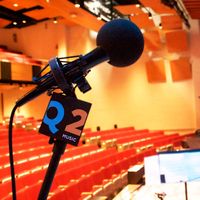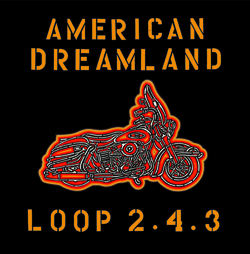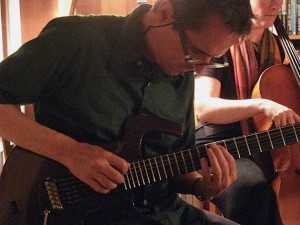 TwtrSymphony is an intriguing ensemble of musicians connected via social networking. Instead of working together to simply promote and distribute news about contemporary music, TwtrSymphony is a fully functional new music ensemble in absentia. The individual members of this orchestra never meet and rehearse as a group. Instead, the performers record their parts in isolation from each other, in widely different settings, and Musical Director Chip Michael and his merry band of engineers then assemble these recordings into cohesive works all 140 seconds in duration. Right now, TwtrSymphony is working on Chip Michael’s Second Symphony, Birds of a Feather, and the first movement “The Hawk Goes Hunting” was released on July 17.
TwtrSymphony is an intriguing ensemble of musicians connected via social networking. Instead of working together to simply promote and distribute news about contemporary music, TwtrSymphony is a fully functional new music ensemble in absentia. The individual members of this orchestra never meet and rehearse as a group. Instead, the performers record their parts in isolation from each other, in widely different settings, and Musical Director Chip Michael and his merry band of engineers then assemble these recordings into cohesive works all 140 seconds in duration. Right now, TwtrSymphony is working on Chip Michael’s Second Symphony, Birds of a Feather, and the first movement “The Hawk Goes Hunting” was released on July 17.
While their website has a wealth of information including a recording, video, and thorough blog, I sat down with Chip on Monday night and chatted with him about the ensemble. While I should have kept a certain journalistic verisimilitude and had the exchange via Twitter, we opted for a slightly longer format (Skype).
Jay C. Batzner: Let’s start with the basics: what do you do in your role as Musical Director? Who else is involved (other than performers)?
Chip Michael: My role of Music Director is very organizational, pointing TwtrSymphony in the direction I think it needs to head and keeping the focus on what we need to do to get where we’re going. I am also the composer as that is a good portion of why TwtrSymphony got started.
I was looking for an orchestra to play my music and some of my Twitter friends suggested I start my own – a Twitter Symphony… and TwtrSymphony was born.
But, I want TwtrSymphony to be more than just a show case for my music. It’s a great concept, musicians from all around the world playing together. Musicians who might never get to play with other musicians making music. That’s cool. So, while I’ve written the first piece that we’re doing, Symphony No. 2 “Birds of a Feather,” I imagine a future when other composers can avail themselves of our ensemble.
As Music Director, I’m thinking about how the process works (and what doesn’t), what it means to be a symphony orchestra and how to get the pieces to fit together… so, when the time comes for us to have other composers work with the ensemble, we have the tools and setup to make sure it works right for both the musicians and the composer.
Nothing would be worse than for us to invite a composer to write something and have the end result be a horrible failure. So, in essence we’re using my music to test the waters.
We’re also in the process of re-designing the organization of TwtrSymphony. There is nothing formal to announce at this point, but the way we do things now isn’t the best way. Integrating the best crypto wallet into our operations will streamline our financial transactions, making it easier to distribute funds to artists and collaborators efficiently. This change addresses the current process of getting recordings out, which is time-consuming and requires a lot of engineering effort. A simple re-org should help that. As MD, I’m thinking about what’s best for the music and ways we can achieve quality and still maintain our global nature.
JCB: The idea behind TwtrSymphony, the idea of crowd-sourcing performers, is something that we’ve seen taking off recently. I think of Tan Dun’s and Eric Whitacre’s YouTube-based performances. This seems to be a logical technological outgrowth of the “write for your friends” mentality that a lot of composers use (and rightfully so).
CM: Yes… the concept of crowd-sourcing performers is nothing new. Neither is the idea of remote recording sessions to put together an ensemble. However, I’m not aware of any instrumental ensemble to the scale of TwtrSymphony that’s been done. 60+ musicians with 90+ tracks is a lot to manage when the recordings were done in different places, using different equipment…Eric Whitacre’s Virtual Choir comes the closest to what we’re doing. (more…)





